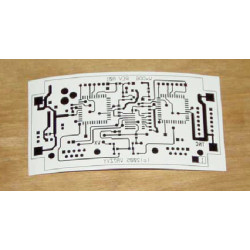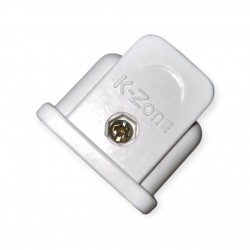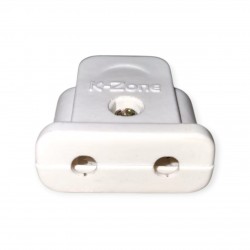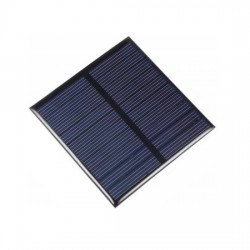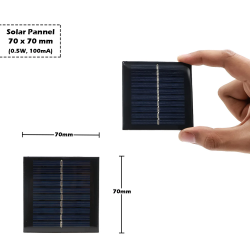Solar panels, also known as photovoltaic (PV) panels, are devices that convert sunlight into electrical energy. They are made up of individual solar cells, which are typically made of silicon or other semiconductor materials. Here's some information about solar panels:
1. Function: Solar panels work by harnessing the energy from sunlight through the photovoltaic effect. When sunlight strikes the solar cells, photons (particles of light) excite electrons within the semiconductor material, creating a flow of electricity. This electricity can be used directly to power devices or stored in batteries for later use.
2. Types of Solar Panels: There are various types of solar panels available, including:
- Monocrystalline Solar Panels: Made from a single crystal structure, these panels offer high efficiency and a sleek black appearance.
- Polycrystalline Solar Panels: Made from multiple crystal structures, these panels are less expensive but slightly less efficient than monocrystalline panels.
- Thin-Film Solar Panels: These panels use a thin semiconductor layer, offering flexibility and lower manufacturing costs but lower efficiency.
3. Solar Panel Installation: Solar panels are typically mounted on rooftops, open fields, or other areas with direct access to sunlight. They are installed in arrays or groups to generate sufficient electricity. The panels are connected to an inverter, which converts the direct current (DC) produced by the panels into alternating current (AC) suitable for use in homes or businesses.
4. Benefits of Solar Panels:
- Renewable Energy: Solar panels generate electricity from the abundant and renewable energy source of sunlight, reducing dependence on fossil fuels.
- Cost Savings: Solar panels can help reduce electricity bills over time, especially in areas with high electricity rates.
- Environmental Impact: Solar energy is clean and produces minimal greenhouse gas emissions, helping to mitigate climate change and air pollution.
- Energy Independence: Generating electricity from solar panels provides a level of energy independence and resilience against power outages.
It's important to consider factors such as available sunlight, installation costs, local regulations, and maintenance requirements when considering the installation of solar panels. Consulting with a professional installer can help determine the optimal design and configuration for a solar panel system based on specific needs and circumstances.
Solar
Solar panels, also known as photovoltaic (PV) panels, are devices that convert sunlight into electrical energy. They are made up of individual solar cells, which are typically made of silicon or other semiconductor materials. Here's some information about solar panels:
1. Function: Solar panels work by harnessing the energy from sunlight through the photovoltaic effect. When sunlight strikes the solar cells, photons (particles of light) excite electrons within the semiconductor material, creating a flow of electricity. This electricity can be used directly to power devices or stored in batteries for later use.
2. Types of Solar Panels: There are various types of solar panels available, including:
- Monocrystalline Solar Panels: Made from a single crystal structure, these panels offer high efficiency and a sleek black appearance.
- Polycrystalline Solar Panels: Made from multiple crystal structures, these panels are less expensive but slightly less efficient than monocrystalline panels.
- Thin-Film Solar Panels: These panels use a thin semiconductor layer, offering flexibility and lower manufacturing costs but lower efficiency.
3. Solar Panel Installation: Solar panels are typically mounted on rooftops, open fields, or other areas with direct access to sunlight. They are installed in arrays or groups to generate sufficient electricity. The panels are connected to an inverter, which converts the direct current (DC) produced by the panels into alternating current (AC) suitable for use in homes or businesses.
4. Benefits of Solar Panels:
- Renewable Energy: Solar panels generate electricity from the abundant and renewable energy source of sunlight, reducing dependence on fossil fuels.
- Cost Savings: Solar panels can help reduce electricity bills over time, especially in areas with high electricity rates.
- Environmental Impact: Solar energy is clean and produces minimal greenhouse gas emissions, helping to mitigate climate change and air pollution.
- Energy Independence: Generating electricity from solar panels provides a level of energy independence and resilience against power outages.
It's important to consider factors such as available sunlight, installation costs, local regulations, and maintenance requirements when considering the installation of solar panels. Consulting with a professional installer can help determine the optimal design and configuration for a solar panel system based on specific needs and circumstances.






















